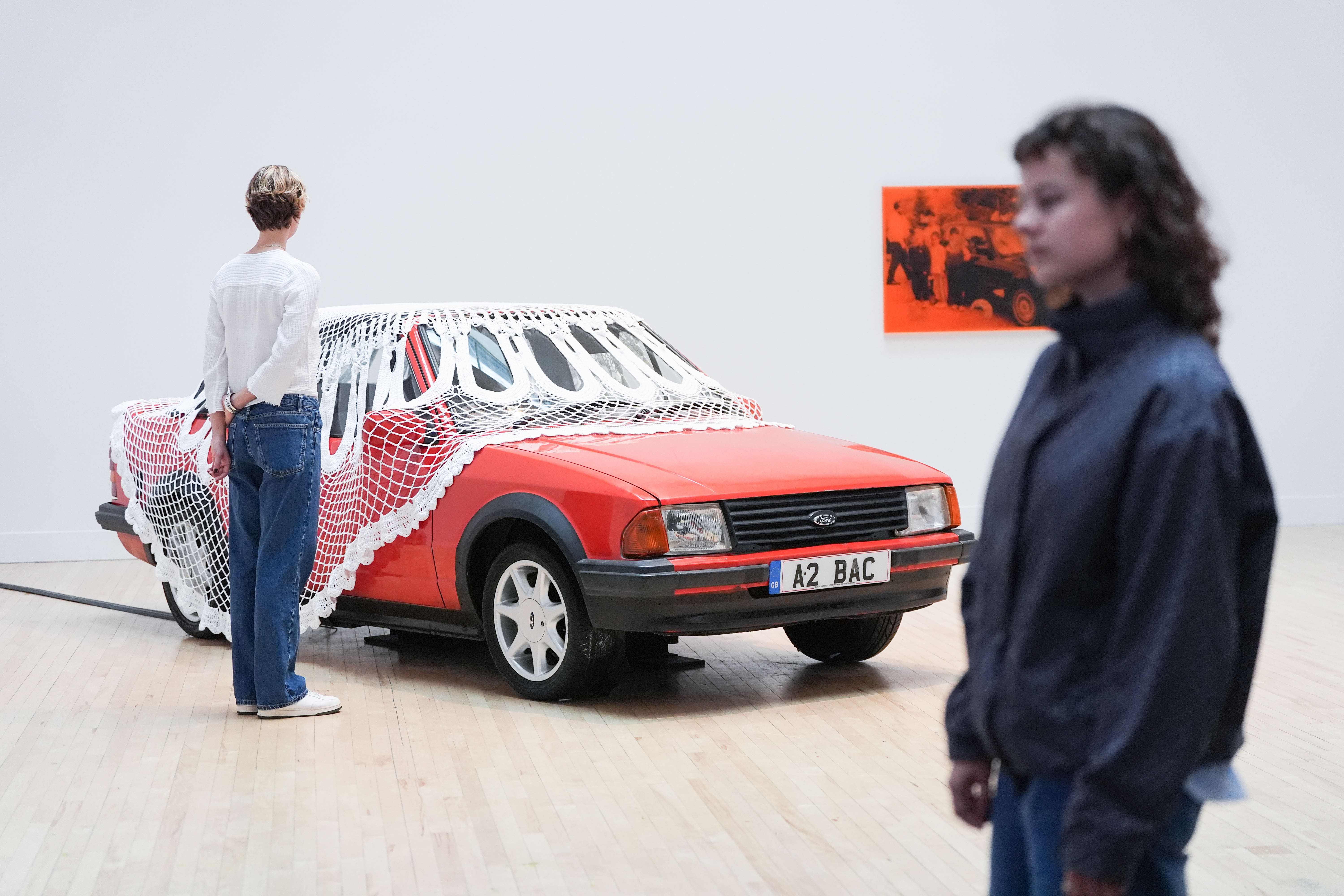Scottish artist Jasleen Kaur who put doily on a car wins Turner Prize 2024
Happy Valley actor James Norton announced the winner in a ceremony held at Tate Britain.

Your support helps us to tell the story
From reproductive rights to climate change to Big Tech, The Independent is on the ground when the story is developing. Whether it's investigating the financials of Elon Musk's pro-Trump PAC or producing our latest documentary, 'The A Word', which shines a light on the American women fighting for reproductive rights, we know how important it is to parse out the facts from the messaging.
At such a critical moment in US history, we need reporters on the ground. Your donation allows us to keep sending journalists to speak to both sides of the story.
The Independent is trusted by Americans across the entire political spectrum. And unlike many other quality news outlets, we choose not to lock Americans out of our reporting and analysis with paywalls. We believe quality journalism should be available to everyone, paid for by those who can afford it.
Your support makes all the difference.Scottish artist Jasleen Kaur has won the Turner Prize for her solo exhibition Alter Altar, which includes an installation of a car with a giant doily on it.
Happy Valley actor James Norton announced the winner in a ceremony held at Tate Britain on Tuesday evening.
The five jury members chose Kaur for “her ability to gather different voices through unexpected and playful combinations of material, from Irn-Bru to family photographs and a vintage Ford Escort, locating moments of resilience and possibility”.
Kaur, who was born in Glasgow but lives and works in London, used her speech to advocate for the people in Palestine.
The 38-year-old said she wanted to “echo the calls of the protesters outside” who had gathered after an open letter urged the Tate to cut ties with “organisations complicit in what the UN and ICJ are finally getting closer to saying is a genocide of the Palestinian people”.
“This is not a radical demand,” Kaur said on stage.
“This should not risk an artist’s career or safety. We’re trying to build consensus that the ties to these organisations are unethical, just as artists did with Sackler,” she said, referencing the family linked to the opioid epidemic.
“I’ve been wondering why artists are required to dream up liberation in the gallery but when that dream meets life we are shut down.
“I want the separation between the expression of politics in the gallery and the practice of politics in life to disappear.
“I want the institution to understand that if you want us inside, you need to listen to us outside.”
Kaur concluded her speech by calling for a ceasefire, adding: “Free Palestine.”
BBC reporter Katie Razzall had to apologise to viewers after Kaur used a swear word in her speech.
The artist was nominated for an exhibition that was held at the Tramway in her home city last year.
The display, a series of installations exploring religious identities, politics and history, makes heavy use of different sounds, embedded into the exhibition by way of worship bells, Sufi Islamic devotional music, Indian harmonium, and pop tracks.
This year the arts prize, named after British painter JMW Turner, which awards £25,000 to its winner, is celebrating its 40th anniversary.
Established in 1984, the prize is awarded each year to a British artist for an outstanding exhibition or other presentation of their work.
Previous recipients include sculptor Sir Anish Kapoor (1991), artist Damien Hirst (1995), and filmmaker Sir Steve McQueen (1999).
In 2025, the prize will be presented in Bradford at Cartwright Hall art gallery, marking the 250th anniversary of Turner’s birth.
The exhibition of the four shortlisted artists – Pio Abad, Claudette Johnson, Delaine Le Bas, and Kaur – is at Tate Britain until February 16 2025.